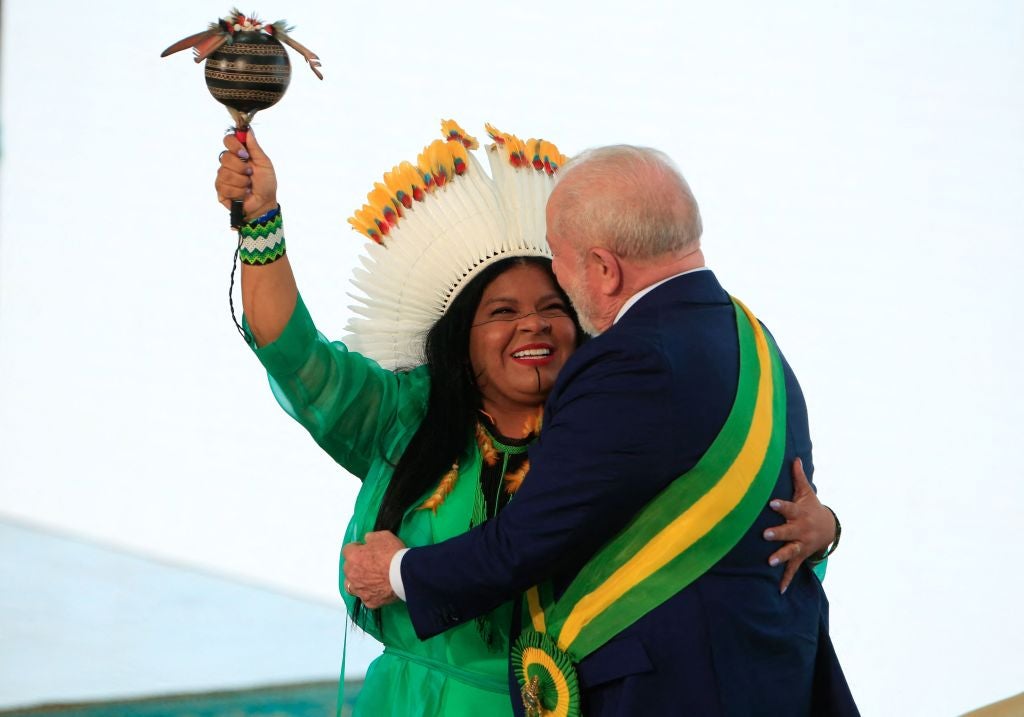
Brazil’s Indigenous affairs minister, Sonia Guajajara, has called on international governments and the global gold industry to acknowledge its role in supporting Brazil’s illegal gold trade.
She called on foreign governments to exert greater control over gold imports, while Guajajara seeks to impose penalties for companies engaging in the illegal gold trade within Brazil.
The administration of President Luiz Inácio Lula da Silva has made stopping the country’s illegal gold trade a priority, following former President Jair Bolsonaro’s encouragement of the practice of so-called “wildcat” mining.
The main import markets for Brazilian gold are Canada, India, Switzerland, the United Arab Emirates and the UK. Around half of Brazil’s gold exports are estimated to be illegally mined.
A study by Instituto Escolhas, a non-profit, found that 98% of the gold trade registered as originating from Indigenous Lands in the Amazon. The fact that many of these lands are not open to mining concession is compelling evidence of illegality.
Guajajara told the Financial Times: “The international community has a fundamental role in the fight against [wildcat mining]. Especially because the majority of companies [buying Brazilian gold] are from other countries. It is urgently necessary to stop this path of gold […] Governments need to regulate what enters their countries”.
Guajajara called on financers of the gold industry to do due diligence in ensuring they know where gold supplies are coming from. Brazil ranks among the world’s top gold producers, so eliminating illegal gold mining, and subjecting these reserves to formal taxation and record-keeping, could be of great benefit to the Brazilian economy.
Illegal mining in Brazil
Earlier this month, Brazil’s Supreme Court granted an injunction, which gave the Brazilian government 90 days to establish a new legal framework for gold mining in the country.
President Lula has vowed to crack down on illegal gold mining practices including mining without authorisation, money laundering and usurping property without legal authorisation.
The Lula administration claims that wildcat mining is responsible for extensive environmental damage in the Amazon rainforest, as well as harm to local communities.
Earlier this year, Lula’s government declared a medical emergency, following reports of increased levels of malaria and mercury poisoning among the region’s Indigenous communities. The administration concluded that wildcat gold miners were responsible for bringing diseases into communities which had not previously been exposed to them, as well as polluting waterways with mine tailings.
During the Bolsonaro administration, the number of children who died from preventable causes in the remote Yanomami Indigenous Territory increased by 29%.
Bolsonaro claimed that the process of wildcat mining allowed for the Amazon rainforest to become a site of economic development for the country given its rich mineral deposits.



